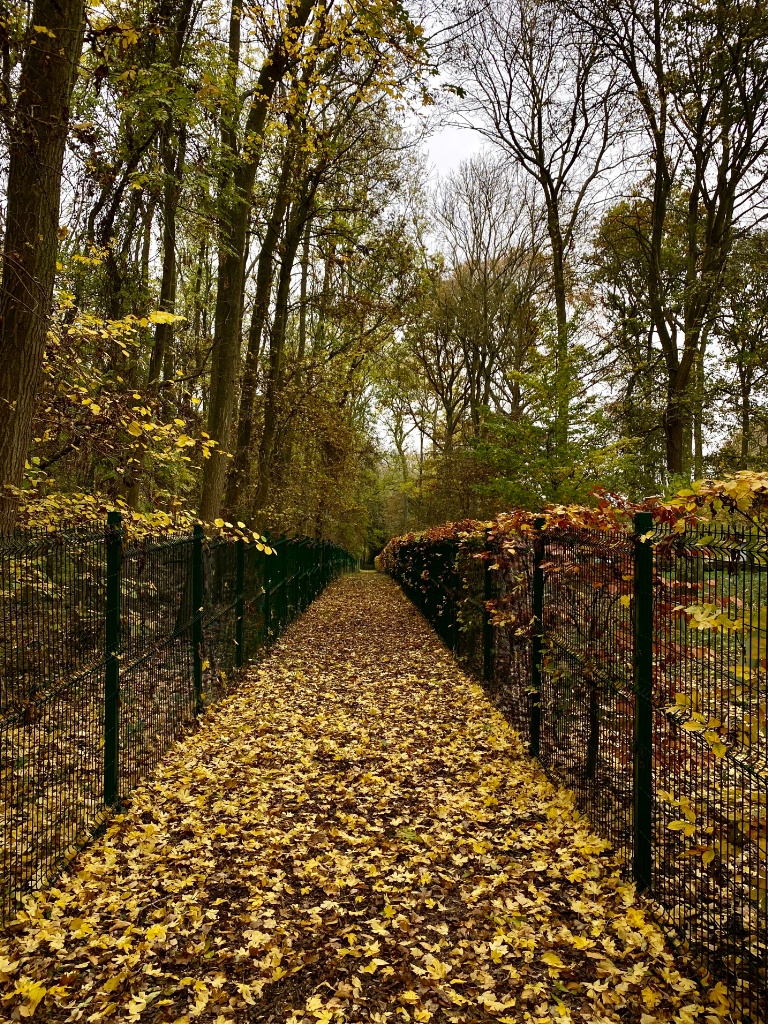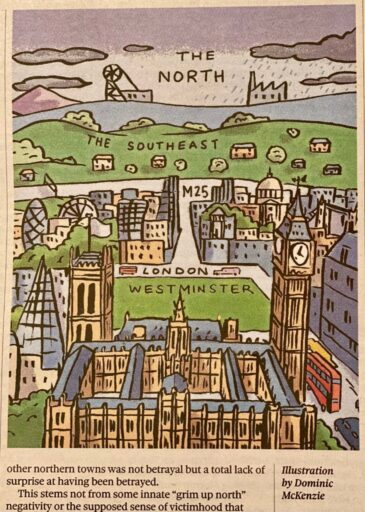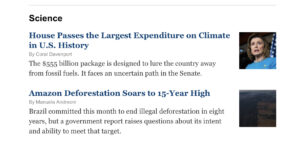Autumnal footpath

Seen on my cycle trip on Saturday morning.
Quote of the Day
”Writing is an integral part of the process of understanding.”
- Hannah Arendt
E.M. Forster (whose 90th birthday party I attended when I was a student) once said that there are two kinds of writers: those who know what they think, and write it; and those who find out what they think by trying to write it. I belong to the latter category, but I have a few friends who belong to the first — and of course I secretly resent their talent!
Musical alternative to the morning’s radio news
Vivaldi | Four seasons | Spring
Played by like you’ve never heard it before by Alexandr Hrustevich in Vilnius in 2013.
I’ve always thought of the accordion as a clumsy, ponderous instrument. In the hands of Sharon Sharon and musicians like Hrustevich it’s definitely not that.
Thanks to Ross Anderson for spotting it.
Long Read of the Day
Is there still time to rein in the tech giants?
Long piece (3,000 words) by me in yesterday’s Observer:
When historians look back on this period, one of the things that they will find remarkable is that for a quarter of a century, the governments of western democracies slept peacefully while some of the most powerful (and profitable) corporations in history emerged and grew, without let or hindrance, at exponential speeds.
They will wonder at how a small number of these organisations, which came to be called “tech giants” (Alphabet, Amazon, Apple, Facebook and Microsoft), acquired, and began to wield, extraordinary powers. They logged and tracked everything we did online – every email, tweet, blog, photograph and social media post we sent, every “like” we registered, every website we visited, every Google search we made, every product we ordered online, every place we visited, which groups we belonged to and who our closest friends were.
And that was just for starters. Two of these companies even invented a new variant of extractive capitalism. Whereas the standard form appropriated and plundered the Earth’s natural resources, this new “surveillance capitalism” appropriated human resources in the shape of comprehensive records of users’ behaviour, which were algorithmically translated into detailed profiles that could be sold to others. And while the activities of extractive capitalism came ultimately to threaten the planet, those of its surveillance counterpart have turned into a threat to our democracy…
Tony Blair reconsidered
I’ve been watching the re-run of the BBC documentary series on the history of New Labour (now on the BBC iPlayer, which means normally accessible only to people in the UK) and finding it gripping. It’s partly because it’s an opportunity to re-visit stories that I thought I knew — but now with the 20/20 vision of hindsight realise that I hadn’t known the half of it.
The second episode was particularly gripping. It open with the night of the 1997 election and New Labour’s landslide victory. And then it recounts how Blair and Brown set about governing.
Two things stood out. The first was how assured they were — especially given that none of them had ever served in government. The film shows Gordon Brown arriving at the Treasury, being greeted by the assembled staff and then meeting in his new office with the most senior officials, led by (Sir) Terry Burns.
The officials were clearly expecting a tea-and-biscuits getting-to-know-you sort of meeting. Instead, Brown says to Burns (the Permanent Secretary) that he has a draft letter with him, addressed to the Governor of the Bank of England, informing him that from now on the Bank would be responsible for setting interest Rates! Talk about hitting the ground running.
The other remarkable thing was that Blair came into office determined to sort out Northern Ireland. The senior officials were stunned by this level of ambition. How much did the Prime Minister know about NI asked the Cabinet Secretary. Blair replied primly that his mother was an Irish protestant. The Cabinet Office officials clearly thought that this idea of his was Mission Impossible. They didn’t twig at first that he was deadly serious, and the film did a brilliant job of conveying how determined he was to get a deal between the warring tribes.
And dammit, on Good Friday 1998 he got it. It was a stupendous achievement.
I found the episode both inspiring and depressing.
Inspiring because it showed what good democratic leadership can do in the UK when backed by a big Parliamentary majority.
Depressing because it highlighted the shambles to which the governance of contemporary Britain has been reduced. And what is particularly galling is having to watch the callous indifference of the Brexit crowd to safeguarding the Good Friday agreement. Entrusting such a delicate task to Johnson & Co is like giving a delicate clock to a monkey.
As a child, I lived in Donegal (in the Republic) and we occasionally visited Derry — just across the border — and once or twice went to Belfast, which I remember as a grimy, forbidding place. Then, a few years ago, I was unexpectedly invited to do a long interview on BBC Northern Ireland.
My wife and I flew to Belfast the night before, checked into a nice hotel in the City Centre and then went out in search of a restaurant for dinner. Sitting in a pleasant bistro, surrounded by people having a peaceful Friday night out in what now looked like a modern city, I fell to think that this was all Tony Blair’s doing. And if he had not dragged the country into the Iraq war, he would be remembered as one of the great prime ministers of the late 20th and early 21st centuries.
But that’s a pointless counter-factual. As Enoch Powell famously observed: all political careers end in failure.
The view from Westminster

Lovely cartoon by Dominic McKenzie in the Observer. It’s a good way of explaining why Johnson’s “Levelling Up” fantasies are doomed. We used to think that France was the most centralised state in the world. In fact, compared to the UK, France is now relatively decentralised.
Commonplace booklet

Headlines in the New York Times.
